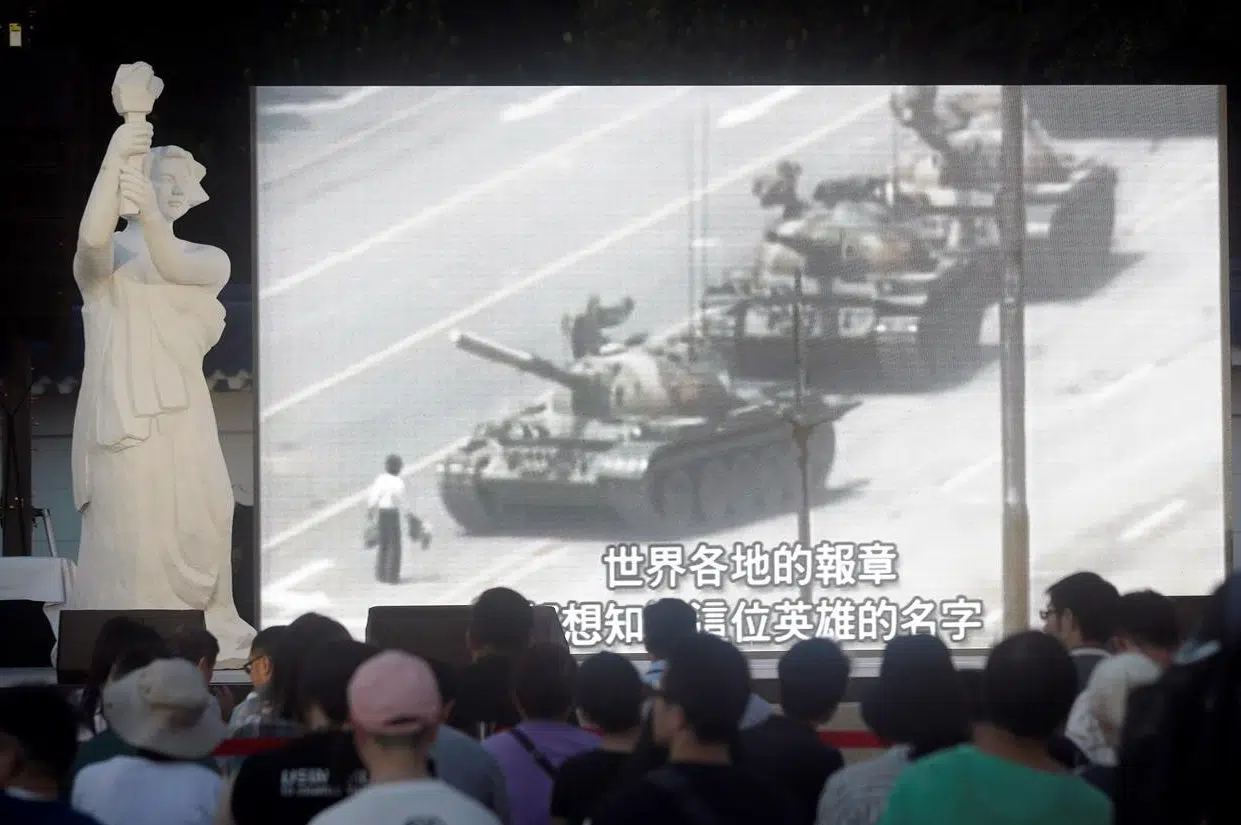OTTAWA — Prime Minister Justin Trudeau marked Tuesday’s 30th anniversary of the Tiananmen Square massacre by saying he has real concerns about China’s human rights record, including the repression of an estimated one million ethnic Uighurs.
“We continue to call on China to respect human rights, to respect the right to protest, to respect freedom of expression, to cease its actions against minorities like the Uighurs in western China,” Trudeau said when asked about the anniversary during an event in Vancouver.
“We have real concerns about China’s behaviour in regards to human rights and we’ll continue to advocate — both directly with Chinese leadership, as I have every time I have sat down with them, and indirectly with our allies — for better respect of human rights on this anniversary and every day going forward.”
Trudeau offered that reply before the government had yet to speak proactively about it. He said Foreign Affairs Minister Chrystia Freeland planned to issue a statement marking the “Tiananmen Square massacre.”
The government appears to be treading carefully — relations with China are at an all-time low following the arrests of Michael Kovrig and Michael Spavor, who are being held without access to lawyers and receive consular visits only about once a month. Ottawa’s calls for their immediate release have prompted angry dismissals and admonishments from Beijing.
The pair continues to languish in Chinese custody, on allegations of espionage, in what is widely viewed as retribution for Canada’s arrest last December of Huawei chief financial officer Meng Wangzhou on an extradition request by the U.S.
U.S. Secretary of State Mike Pompeo and the European Union’s Federica Mogherini urged China to address its decision to kill hundreds, perhaps thousands, of pro-democracy student protesters in 1989.
“We salute the heroes of the Chinese people who bravely stood up 30 years ago in Tiananmen Square to demand their rights. Their exemplary courage has served as an inspiration to future generations calling for freedom and democracy around the world, beginning with the fall of the Berlin Wall and the end of communism in Eastern Europe in the months that followed,” Pompeo said in a statement Monday.
“We urge the Chinese government to make a full, public accounting of those killed or missing to give comfort to the many victims of this dark chapter of history.”
Mogherini called for the release of human rights defenders and lawyers now in custody in relation to the June 1989 events.
“Acknowledgment of these events, and of those killed, detained or missing in connection with the Tiananmen Square protests, is important for future generations and for the collective memory.”
Liberal Sen. Jim Munson, who covered the massacre in Beijing as a CTV television journalist, appeared to be the only Canadian lawmaker to proactively address the events when he made a statement in the Senate on Monday.
“It’s difficult to watch people die. It’s difficult to watch people being crushed by tanks. And it’s difficult to be in a hospital, in the morgue section, and taking a look at the bodies that were once, moments before, chanting slogans about democracy and talking about freedom and that sort of thing,” Munson said in an interview Tuesday.
“What bothers me immensely is the erasing of history in China by the Chinese government, and the fact that the young people of today are not aware of what took place, and if you are aware you don’t dare to talk about it.
“If you are aware, you have been fed a government line through a school system or a government propaganda that this had to be done. Well, no government has to kill its own people.”
An editorial in the Beijing-based Global Times said the anniversary was being used by dissidents and the West, including the U.S., as a “diplomatic tool to challenge China.”
The editorial defended the use of force by the Chinese military against unarmed protesters.
“The Chinese government’s control of the incident in 1989 has been a watershed marking the differences between China and former Eastern European socialist countries, including the Soviet Union and Yugoslavia,” it read.
“Since the incident, China has successfully become the world’s second-largest economy, with rapid improvement of people’s living standards. The policy of avoiding arguing has served as a contributor to the country’s economic take-off.”
Mike Blanchfield, The Canadian Press







